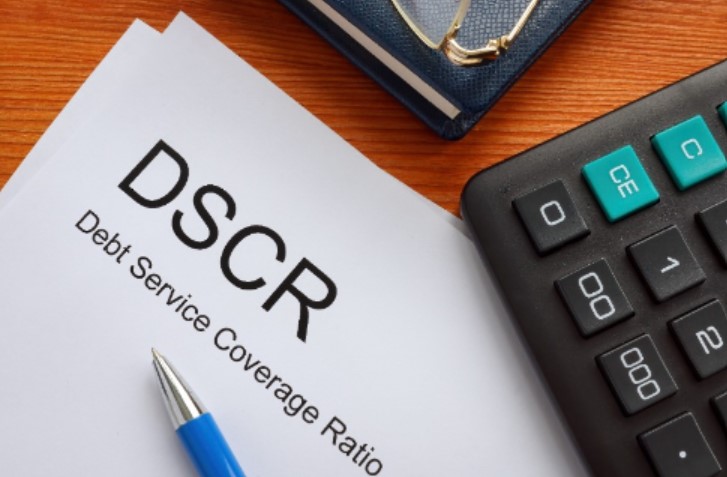In this article, we’ll explain How To Apply For A DSCR Loan? Understanding the nuances of a DSCR loan is crucial for investors looking to leverage rental income for property investment. This type of loan evaluates your potential rental income against your debt obligations, making it a unique financial tool.
Key Takeaways
- DSCR loans are evaluated based on potential rental income.
- They are ideal for investors with hard-to-document income.
- Leading lenders specialize in non-QM loans, offering flexibility.
- Loan terms can include interest-only payments, enhancing cash flow.
- DSCR loans can go up to $5 million with certain lenders.
How To Apply For A DSCR Loan?
Applying for a DSCR (Debt Service Coverage Ratio) loan involves several detailed steps. Here’s a breakdown of the process:
1. Assess Your Investment Property
Before applying, evaluate the property you wish to finance. Ensure it’s a good investment with a rental income that can cover the PITIA (Principal, Interest, Taxes, Insurance, and Association dues).

2. Calculate the Property’s DSCR
Calculate the DSCR by dividing the property’s monthly rental income by its monthly PITIA. A DSCR of 1 means the income covers the expenses. Lenders typically look for a DSCR greater than 1.
3. Check Your Credit Score
Review your credit report and score. While DSCR loans focus on property income, a good credit score can secure better terms.
4. Gather Necessary Documents
Prepare financial documents related to the property, including current lease agreements, income statements, and any operating expenses.
5. Research Lenders
Look for lenders that offer DSCR loans. Compare their terms, rates, and minimum DSCR requirements.
6. Prequalification
Contact lenders to get pre-qualified. This step usually involves a soft credit check and basic financial information.
7. Submit Loan Application
Choose a lender and submit a formal application. Provide all required documentation for the property and your financial situation.
8. Property Appraisal
The lender will order an appraisal to determine the property’s value and confirm the rental income potential.
9. Underwriting
The lender’s underwriting team will review the application, documents, and appraisal to decide on loan approval.
10. Loan Approval and Closing
If approved, you’ll receive a loan offer. Review the terms carefully. Upon acceptance, you’ll proceed to closing, where you’ll sign legal documents and finalize the loan.
11. Post-Closing
After closing, the loan funds will be disbursed. You can then use the funds according to the terms agreed upon with the lender.
Each lender may have specific nuances in their application process, but these steps provide a general guide on how to apply for a DSCR loan. Always consult with a financial advisor or loan specialist to ensure you understand the details and obligations of a DSCR loan.
Understanding DSCR Loans
A DSCR loan, or Debt-Service Coverage Ratio loan, is a type of non-qualified mortgage that allows property investors to qualify for financing based on the income generated from the property they intend to purchase. This approach is particularly beneficial for investors who may not have traditional income documentation but can leverage the property’s income potential.

Finding the Right Lender
The journey to securing a DSCR loan begins with selecting the right lender. Traditional banks and credit unions typically do not offer DSCR loans, so you’ll need to look for lenders that specialize in non-QM loans. These lenders offer the flexibility required to accommodate the unique circumstances of property investors.
Loan-to-Value Ratio (LTV)
Your loan-to-value ratio is a critical factor in the DSCR loan application process. It determines how much of the property’s purchase price or value the lender is willing to finance. Lenders have varying LTV requirements, often influenced by the borrower’s credit score.
Lease Requirements and DSCR Ratio
Lenders will look at the existing lease agreements on the property and the DSCR ratio, which compares the property’s income to its debt obligations. A higher DSCR ratio typically means a better chance of loan approval.
Interest-Only Options and Loan Terms
Some lenders offer interest-only payment options, particularly during the initial period of the loan. This can significantly lower monthly payments and improve the DSCR, increasing the likelihood of approval.

Qualifying for a DSCR Loan
Qualifying for a DSCR loan involves meeting specific lender criteria, which can include credit score minimums, cash reserves, and the property’s DSCR. Each lender sets its own guidelines, and it’s essential to discuss your situation with potential lenders to understand what’s required.
The Application Process
Applying for a DSCR loan is a straightforward process that typically involves an online application. Lenders will review your scenario and provide options based on the information you provide about the investment property and your financial situation.
Evaluating Your Investment Strategy
When considering a DSCR loan, aligning your investment strategy with your financial goals is paramount. Investors should assess the rental market, forecast potential income, and calculate their expected DSCR with precision. A well-thought-out investment strategy can significantly impact the terms of the loan and the overall success of the investment.
Discuss the importance of understanding market trends and how they affect rental income. Offer insights into how investors can enhance their property’s income potential through targeted improvements or strategic management changes.
The Role of Credit Scores in DSCR Loans
Credit scores play a vital role in the DSCR loan application process. While DSCR loans may be more accessible to those with complex income situations, a solid credit history can still provide leverage in negotiating loan terms.

In this section, explore how investors can prepare their credit for a DSCR loan application. Provide tips on improving credit scores and how a higher credit rating can lead to better loan-to-value ratios and interest rates.
Understanding the terms and rates of DSCR loans can be complex. Interest rates, loan amortization, and the impact of loan terms on monthly payments and DSCR should be thoroughly examined.
Offer a detailed explanation of how different loan terms can affect an investor’s financials. Compare short-term gains with long-term benefits and discuss how to choose the right loan structure for long-term investment success.
Preparing for the Application
The application process for a DSCR loan requires meticulous preparation. Potential borrowers must gather financial documents, prepare the property’s financial statements, and possibly conduct a rental market analysis.
Provide a checklist of the documents and preparations needed for a successful application. Emphasize the importance of accuracy and completeness in this documentation to streamline the approval process.
Closing and Post-Closing Considerations
The closing process for a DSCR loan involves several steps, including finalizing the loan terms, signing the documents, and meeting any lender-specific closing conditions.

Discuss what investors should expect during the closing process, post-closing obligations, and how to manage the new financial responsibilities effectively. Offer advice on maintaining a good relationship with the lender and strategies for managing the investment property efficiently.
Leveraging DSCR Loans for Portfolio Growth
Experienced investors often use DSCR loans not just for individual properties but as part of a broader strategy to grow their investment portfolios.
Illustrate how DSCR loans can be a tool for portfolio expansion. Discuss the considerations for scaling up, such as managing multiple properties, optimizing rental income across a portfolio, and the potential for refinancing as a way to unlock additional capital.
How Do I Qualify For A DSCR Loan?
To qualify for a Debt Service Coverage Ratio (DSCR) loan, lenders primarily focus on the income generated by the property compared to its debt obligations, rather than your personal income.

The DSCR is calculated by dividing the property’s annual net operating income (NOI) by its annual mortgage debt service, including principal, interest, taxes, insurance, and any HOA fees. A ratio of 1 means you are breaking even, but lenders typically look for a DSCR of 1.25 or higher.
The exact requirements can vary by lender, but they will also consider your credit score, the property type, and its occupancy status. It’s essential to have a solid rental income history or a realistic projection for the property to make a strong case for a DSCR loan.
How Much Do You Need To Put Down On A DSCR Loan?
The down payment for a DSCR loan can vary significantly depending on the lender and the risk associated with the loan. Generally, you can expect to put down at least 20% to 25% of the property’s purchase price. Some lenders might require more, especially if the DSCR is lower or if the property type is considered higher risk.

It’s also not uncommon for lenders to offer better terms, including a lower interest rate or reduced fees, for larger down payments. To secure the best terms, it’s advisable to shop around with different lenders and compare the loan-to-value ratios and down payment requirements.
Can A First-Time Investor Get A DSCR Loan?
Yes, a first-time investor can obtain a DSCR loan, but there are specific nuances to consider. Lenders typically assess the risk based on the property’s ability to generate income rather than the investor’s personal financial history.

This can be advantageous for first-time investors without an extensive personal investment history. However, lenders may still require a good credit score and may scrutinize the investment’s projected income more closely. They might also look for additional assurances, such as a larger down payment or reserves.
It’s crucial for first-time investors to present a well-researched business plan that demonstrates the property’s potential for generating sufficient rental income to cover loan payments and other expenses.
What DSCR Is Required For A Loan?
The required DSCR for a loan can vary by lender and the type of property being financed. Typically, lenders look for a DSCR of 1.25 or higher, which indicates that the property generates enough income to cover 125% of its debt obligations.
This extra cushion ensures that the property can withstand some vacancy or unexpected expenses without falling short on the mortgage. Some lenders might accept a lower DSCR for properties in prime locations or with a strong rental history, while others may require a higher DSCR for properties that are deemed riskier investments.
It’s important to understand that the DSCR requirements might be flexible in conjunction with other factors, such as the borrower’s creditworthiness and the loan-to-value ratio.
Conclusion
Securing a DSCR loan can be a strategic move for property investors, especially those with non-traditional income sources. With the right lender and a solid understanding of the requirements, investors can unlock the potential to expand their rental property portfolio, leveraging the very income those properties generate.
People Also Ask
Do DSCR Lenders have uniform qualification rules?
No, DSCR lenders have varying guidelines and qualification rules. While they may have similar interest rates and loan terms, their underwriting guidelines can differ, offering flexibility for real estate investors with unique investment strategies or properties.
What is the minimum loan amount for a DSCR Loan?
The minimum loan amount for a DSCR loan varies by lender, typically ranging from $75,000 to $150,000, with some lenders willing to go as low as $55,000.
Can I live in a property purchased with a DSCR Loan?
No, DSCR loans are strictly for investment properties. Borrowers must sign a legal affidavit confirming they will not occupy the property.
Are DSCR Loans available for short-term rentals?
Yes, properties used as short-term or vacation rentals can be financed with DSCR loans, but the borrower cannot occupy the property for more than two weeks per year.
A multifaceted professional, Muhammad Daim seamlessly blends his expertise as an accountant at a local agency with his prowess in digital marketing. With a keen eye for financial details and a modern approach to online strategies, Daim offers invaluable financial advice rooted in years of experience. His unique combination of skills positions him at the intersection of traditional finance and the evolving digital landscape, making him a sought-after expert in both domains. Whether it’s navigating the intricacies of financial statements or crafting impactful digital marketing campaigns, Daim’s holistic approach ensures that his clients receive comprehensive solutions tailored to their needs.








